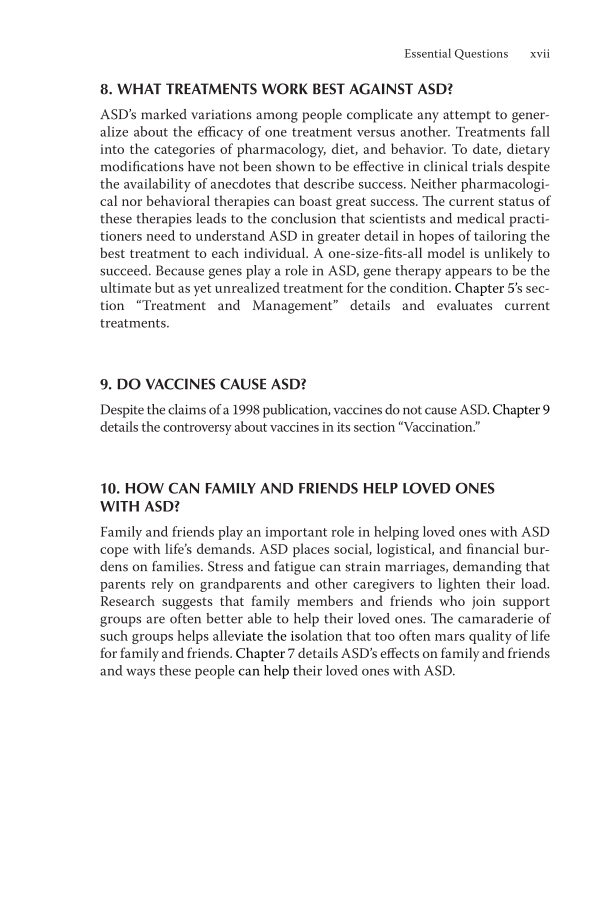Essential Questions xvii 8. WHAT TREATMENTS WORK BEST AGAINST ASD? ASD’s marked variations among people complicate any attempt to gener- alize about the efficacy of one treatment versus another. Treatments fall into the categories of pharmacology, diet, and behavior. To date, dietary modifications have not been shown to be effective in clinical trials despite the availability of anecdotes that describe success. Neither pharmacologi- cal nor behavioral therapies can boast great success. The current status of these therapies leads to the conclusion that scientists and medical practi- tioners need to understand ASD in greater detail in hopes of tailoring the best treatment to each individual. A one-size-fits-all model is unlikely to succeed. Because genes play a role in ASD, gene therapy appears to be the ultimate but as yet unrealized treatment for the condition. Chapter 5’s sec- tion “Treatment and Management” details and evaluates current treatments. 9. DO VACCINES CAUSE ASD? Despite the claims of a 1998 publication, vaccines do not cause ASD. Chapter 9 details the controversy about vaccines in its section “Vaccination.” 10. HOW CAN FAMILY AND FRIENDS HELP LOVED ONES WITH ASD? Family and friends play an important role in helping loved ones with ASD cope with life’s demands. ASD places social, logistical, and financial bur- dens on families. Stress and fatigue can strain marriages, demanding that parents rely on grandparents and other caregivers to lighten their load. Research suggests that family members and friends who join support groups are often better able to help their loved ones. The camaraderie of such groups helps alleviate the isolation that too often mars quality of life for family and friends. Chapter 7 details ASD’s effects on family and friends and ways these people can help their loved ones with ASD.
Document Details My Account Print multiple pages
Print
You have printed 0 times in the last 24 hours.
Your print count will reset on at .
You may print 0 more time(s) before then.
You may print a maximum of 0 pages at a time.




















































































































































































